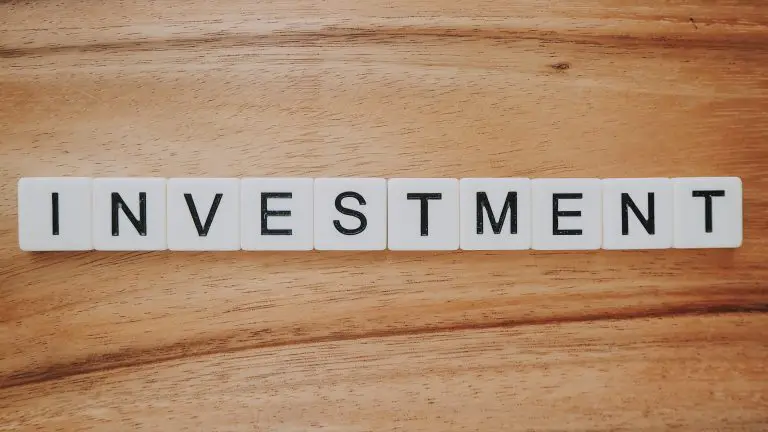Index Investing vs Active Management: What’s the Difference?”
We all want to make wise investments and grow our money, but it can be difficult to figure out which investment strategies are best for us
One common question is whether Index Investing vs Active Management is better.
Active management involves the investor attempting to beat the market by choosing specific stocks or sectors that they believe will deliver above-average returns. On the other hand, index investing is a passive strategy of buying and holding a portfolio of stocks that match a predetermined index.
Active management attempts to outperform the market and can be more costly due to the additional research, analysis and decision-making involved. Index investing is a simpler, more passive approach and is typically much cheaper to implement than active management, due to the lack of research and analysis required.
In this article, we will explore the differences between index investing and active management, and provide tips on which investing strategy might be right for you.

Introduction to Index Investing vs Active Management
When it comes to investing, there are two main types of strategies: index investing and active management.
With index investing, you invest in a fund that tracks a specific index (like the S&P 500).
This type of investing is often referred to as passive investing, where you simply invest in a specific index and not make any active decisions about which stocks to buy or sell.
On the other hand, active management involves selecting stocks and deciding which stocks to buy and sell to beat the market.
This type of investing is often called active investing, where you or a manager actively decide which stocks to buy or sell.
The basics of index investing
Index investing is a type of passive investing in which investors buy and hold a fund that tracks a specific index (like the S&P 500 or FTSE 100).
Index funds typically have low fees, which makes them attractive to investors looking to maximize their returns.
The main advantage of index investing is that it allows investors to diversify their investments across various stocks easily.
Index funds typically include a mix of stocks from different sectors, industries, and countries, which helps reduce risk and improve returns.
Index investing also provides investors with the opportunity to invest in a variety of different markets without having to manage their investments actively.
This makes index investing a popular choice for investors who don’t have the time or expertise to manage their investments actively.
The basics of Active management
Active management is investing in which investors actively select stocks and decide which stocks to buy and sell to beat the market.
This investing requires much research and analysis and often involves using sophisticated investment strategies.
The main advantage of active management is that it allows investors to take advantage of short-term market opportunities that may not be available to index investors.
This can be especially beneficial in volatile markets where stock prices change quickly.
The main disadvantage of active management is that it can be time-consuming and expensive. Active management requires a great deal of research and analysis and often involves using sophisticated investment strategies.
Additionally, actively managed funds typically have higher fees than index funds, which can reduce overall returns.
Performance of Index Funds vs. Actively Managed Funds
An increasing amount of evidence suggests that index funds outperform actively managed funds over time.
Over the past 25 years, numerous studies have found that actively managed funds fail to beat their benchmark indices.
This is because the extra cost associated with actively managed funds outweighs the additional returns, even when highly skilled individuals manage these funds.
Index funds provide a low-cost, passive investment option that offers returns in line with the market.
By investing in a broad range of stocks and bonds, index funds provide investors with a portfolio that mirrors the overall market’s returns, with minimal effort and cost.
Because index funds are not actively managed, and are instead tracked to an index, investors are not subject to the same fees or risks associated with actively managed funds.
In summary, index funds are a more cost-effective, passive investment option compared to actively managed funds.
Although actively managed funds may offer the potential for higher returns, the evidence suggests that these higher returns are not achieved in practice, making index funds the more attractive investment option.
Tips for Choosing Between Index Funds and Actively Managed Funds
When choosing between index funds and actively managed funds, it is important to consider your individual needs and goals. Here are a few tips to help you make the best decision:
- Consider your investment goals: If you are looking to maximize returns and are willing to take on more risk and pay higher fees, actively managed funds may be a better choice. However, index funds may be better if you want a low-cost and low-maintenance investment.
- Do your research: Before investing in any type of fund, it is important to do your research and understand the risks and rewards associated with each type of fund.
- Make sure its well diversfied: Does it invest in a veriety of companies, sectors and countires around the world.
- Consider the fees: Fees can significantly impact overall returns, so comparing the fees associated with index funds and actively managed funds is important to determine the better option for your individual needs.
Is Index Investing Recession Proof?
Index investing is not necessarily recession-proof but can be a good strategy for weathering a recession.
Index funds tend to be less volatile than actively managed funds, which can be beneficial in a down market.
Additionally, index funds provide investors with the opportunity to diversify their investments across a variety of different stocks and markets, which can help to reduce overall risk.
However, it is important to remember that no type of investing is completely recession-proof. Even index funds can suffer losses in a down market, and investors should always be aware of the risks associated with any type of investing.
It’s the long-term trend of index investing that is your friend.
Are Index Funds a Better Investment Than Managed Funds?
The answer to this question depends on your individual needs and goals.
Index funds may be the better option for investors looking for a low-cost and low-maintenance way to invest. Additionally, index funds tend to outperform actively managed funds over the long term, which can lead to higher returns.
However, actively managed funds may be a better option for investors looking to take advantage of short-term market opportunities. You just need to be aware of the fees and how this may affect any short and long-term gains.
FAQ: actively managed vs index funds
Are actively managed funds better than index?
Understanding the differences between index and actively managed funds is key to selecting the best option.
Index funds are passive investments that seek to replicate the performance of a specific index or benchmark, such as the S&P 500. On the other hand, Actively managed funds are actively managed by a portfolio manager or a team of investment professionals who make decisions on which securities to buy and sell.
Active management has the potential to outperform the index, but it is also more costly than index investing.
Over the long term the evidence points towards low-cost index funds outperforming active funds mainly because of the drag of higher fees in active management.
Do active fund managers outperform the index?
The weight of the evidence is that active managers do not outperform the market over the long term. Making index investing the winner in the long run.
After fees, active managers find it very difficult to beat well-diversified index funds.
Occasionally one or two active managers do beat the market, but this is usually short-term success before they revert to the mean either because of how or what they invest in and their ongoing fees.
Should I choose active or index target date funds?
This is a very personal choice but the evidence points towards keeping and growing your money more successfully with index funds.
After fees, active funds struggle to keep up with the long-term gains of index funds.
There is a lot of marketing around active funds that you will have to wight against the evidence of index funds.
If you ant a more or less hands-off approach to investing then, index investing may be your preferred choice.
Is indexing an active management strategy?
Indexing is an investment strategy that involves tracking and replicating the performance of a broad-based market index, such as the S&P 500.
This is often referred to as passive management, meaning that you or a manager do not actively select individual stocks or attempt to outperform the underlying index.
If you are looking to maintain a low-cost and efficient portfolio, indexing can be an attractive way to go.
How Much of the Market Is Passively Invested?
According to Bllomberg passive funds have now become force in the US stock market, accounting for approximaltey 15% of the market
This amount of the market held by passive investors is expected to continue to rise, as more investors adopt passive strategies and move thier money into investments in index funds.
What Was the First Passive Index Fund?
The first index fund was the Vanguard 500 fund, introduced by John Bogle in 1976.
Bogle was an investor and founder of the Vanguard Group, one of the largest investment firms in the world.
This fund tracked the returns of the S&P 500, marking the first index fund marketed to the general public..
How can I invest in index funds?
You can purchase index funds from most investmetn platforms or brokerage firms.
Popular index fund providers include Fidelity, Vanguard, iShares and Schwab amongst others.
To buy index funds, you would need to open a brokerage account that allows you to buy and sell shares of the fund you’re interested in.
Conclusion: active vs passive funds
So that’s our quick guide to index investing and active management.
Index investing is a type of passive investing in which investors buy and hold a fund that tracks a specific index. Active management involves selecting stocks and deciding which stocks to buy and sell to beat the market.
Both index investing and active management have advantages and disadvantages, and it is important to consider your individual needs and goals when deciding which type of investing is right for you.
Index funds tend to have lower fees and provide the opportunity to diversify your investments, while actively managed funds offer the potential for greater returns.
Additionally, index funds may be a good strategy for weathering a recession.
By understanding the differences between the two types of investing and doing your research, you can decide which type of investing is right for you.
Want to break free from financial insecurity?
Take control of your financial future with Financially Happy!
Our financial planning coaching services will empower you to make informed decisions, set and achieve financial goals, and ultimately lead a financially happy life.
Don’t wait; schedule your consultation today and start your journey to financial freedom!







